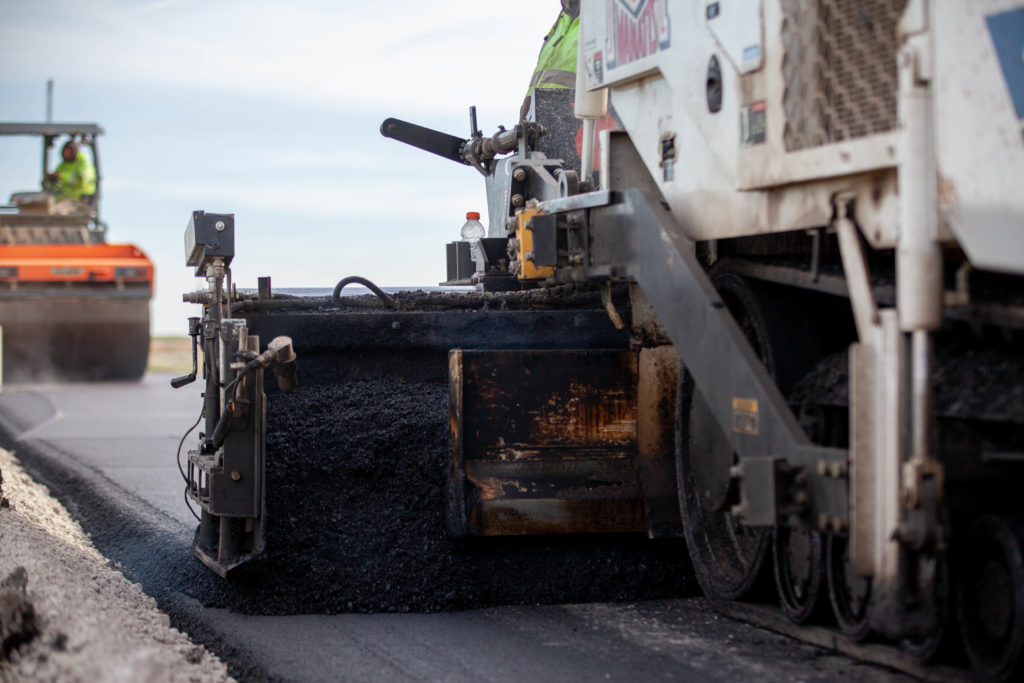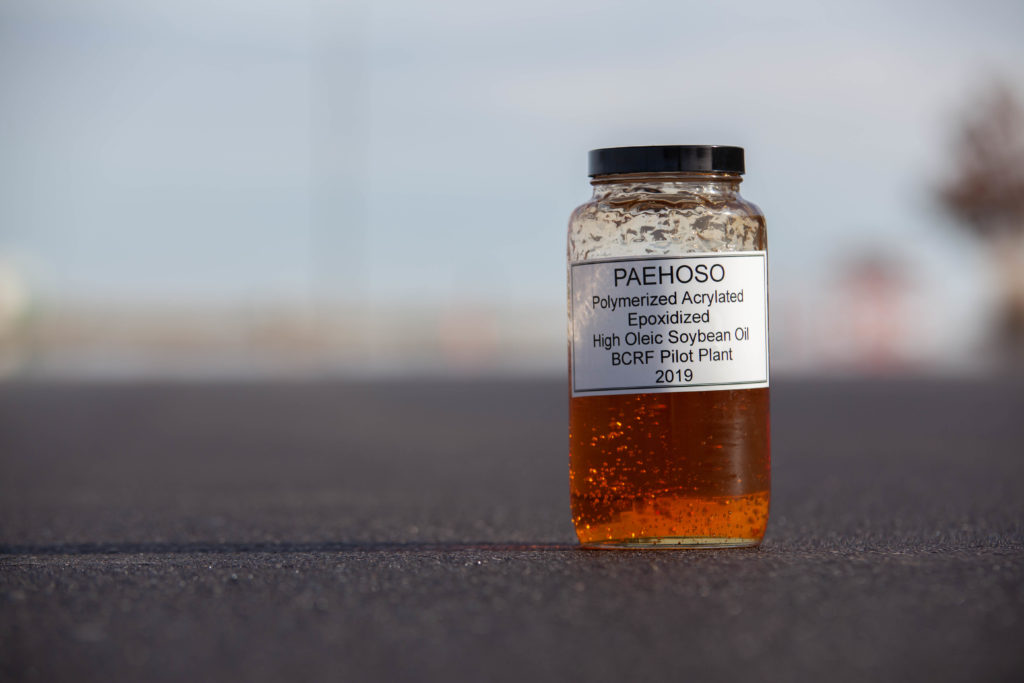Paving New Paths with High Oleic Soybean Oil
In mid November, a research team at Iowa State University came together in Boone, Iowa, to demonstrate a new biobased polymer for asphalt made possible with the power of soy.

The United Soybean Board partnered with the Iowa Soybean Association and the Asphalt Paving Association of Iowa to make the demonstration possible. USB released this video from the event showing the paving demonstration that utilized a high oleic soy-based polymer.
“We get pretty excited about what our beans can do and where they end up — particularly when it fills a market need and brings profit opportunities to farmers across the country,” said Gregg Fujan, former USB director and soybean farmer from Weston, Nebraska. “It’s our mission to innovate beyond the bushel, and we work hard to provide opportunities like this one through building strategic partnerships, funding innovative research and more to drive demand and preference for U.S. soybeans.”
“Asphalt chemistry is very complex, and the oleic acid content in soybean oil is kind of the ‘secret sauce’ they they’ve been able to use.”- Gregg Fujan
The research team used high oleic soybean oil as a key ingredient for the rubber. When incorporated into asphalt, high oleic soybean oil increases the performance advantage, getting more mileage out of the asphalt. The polymer made from high oleic soybean oil offers a lower-cost and cleaner alternative to the traditional petroleum-based polymers used in asphalt.
“When we make our polymers from high oleic soy, they have better elastic properties,” said Eric Cochran, professor of chemical and biological engineering at Iowa State University. “Performance isn’t the only aspect of a technology that makes it viable, though. Soy is a great fit for us because the volume of soy oil available for industrial uses matches well with the market potential for vegetable oil-based elastomers.”
Additionally, Cochran mentioned many soy crush facilities have the capital equipment to execute the first chemical processing steps needed to make their materials. This expedites the process to scale the technology commercial production.

Cochran said in 2011, the team discovered that vegetable oils could be upgraded to thermoplastic rubbers (i.e., rubbers that can be melted or dissolved).
“Our high oleic soybean oil asphalt modifier works by creating spring-like connections between the components of an asphalt pavement to make it more resilient at high temperature and resistant to cracking at low — even extremely low — temperatures,” said Cochran. “The oleic acid content of high oleic soybean oil creates a much higher-quality ‘spring’ due to its much lower chemical functionality.”
Soybean oil is successful as an asphalt modifer, according to the recent tests conducted at Iowa State University. This demonstration, held at a parking lot at Iowa State’s BioCentury Research Farm, showcased confidence in the product.
“Asphalt chemistry is very complex, and the oleic acid content in soybean oil is kind of the ‘secret sauce’ they they’ve been able to use,” Fujan added. “It increases the reuse rate on asphalt grindings from 17% to more than 30%. It changes the chemistry of that mix, which is very advantageous for the industry.”
The oleic acid content of high oleic soybean oil creates a much higher-quality ‘spring’ due to its much lower chemical functionality.”- Eric Cochran
Cochran believes the asphalt market is such an extensive market that the adoption of asphalt modifiers based with high oleic soybean oil will create noticeable demand for high oleic soybean oil in the near future.
“As a specialty product, this market will tolerate the higher prices commanded by high oleic soybean oil,” said Cochran. “In this way, asphalt will create demand for high oleic soybean oil in the short term, boosting high oleic soybean oil as the norm long-term. Asphalt demand also helps high oleic soybean oil access the more price-sensitive food markets.”
When producers and contractors increase the amount of low-cost raw materials, they will save money without sacrificing performance, according to Cochran. As completely biorenewable materials displace petroleum-based asphalt modifiers, some environmental benefits follow.
“Our asphalt modifier will enable high-quality pavements to be produced from low-quality raw materials like overly stiff vacuum tower bottoms and recycled asphalt pavement,” Cochran said. “Producers will save money by using these raw materials, and the materials stay out of landfills or incinerators.”



